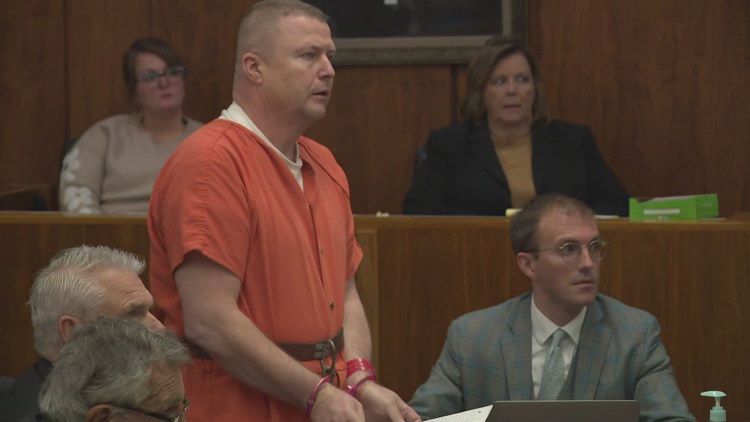CLARK COUNTY, Ind. — Ex-sheriff Jamey Noel was sentenced to 15 years in prison Monday and ordered to pay millions of dollars to his victims. Does he really have to pay that money back, on what timeline, and what happens if he can't?
Noel was convicted of 27 felony charges, including 15 counts of theft and four counts of official misconduct that occurred during his time as Clark County sheriff.
RELATED: Former Indiana sheriff Jamey Noel receives 15-year prison sentence as judge accepts plea agreement
He stole more than $4 million from the Utica Township Volunteer Firefighters Association (UTVFA) and the Clark County Sheriff's Department, spending the money on himself, family and friends.
New Chapel EMS, of which Noel was CEO, lost the majority of its contracts as a result of this case. The department is now a fraction of its former size.
Prosecutor Ric Hertel said the judge ordered Noel to pay more than $3 million to UTVFA, the sheriff's department, the Department of Revenue and the Indiana State Police.
Several assets in Noel's name, including personal and real property, will likely be taken as payment toward his restitution. However, it is unclear if that will be enough.
RELATED: 'It's all my fault' | Jamey Noel speaks at sentencing, apologizes to family, friends and colleagues
"Whether or not the assets will cover that – I don’t know that fact right now," Hertel said.
The conditions of Noel's plea agreement state he will have to pay restitution once he is released from incarceration. However, not paying wouldn't necessarily be a violation of his plea agreement.
“The determination would need to be made then that he has an ability to pay and is knowingly not paying,” Hertel said.
In the end, the court will decide how Noel's restitution will be paid.
The last three years of Noel's sentence will be served on probation.
Restitution laws in Indiana
- If the defendant doesn't have the money to pay restitution, the court may set up a payment plan, directly deduct payments from their wages, or enroll them in the “inmate financial responsibility program," which applies a percentage of prison wages to their restitution, according to the U.S. Department of Justice.
- Defendants won't start paying restitution until they're on probation. They have until the end of their probation to pay the full amount.
- If restitution isn't paid in time, interest may accumulate, resulting in additional fines. If restitution continues to be unpaid, the defendant may be found in violation of probation, according to Indiana law.
- Defendants can't be incarcerated for not paying restitution if they prove they can’t pay it. However, if it's determined the defendant has assets but refuses to pay, they could then be incarcerated.
- Defendants may appeal a restitution order by filing a motion or by presenting new evidence.



